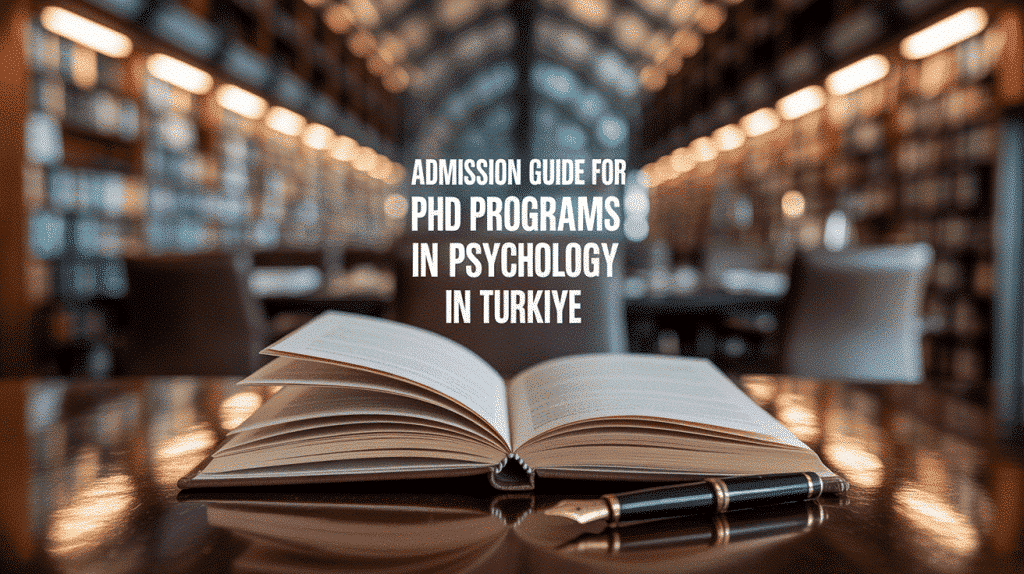Admission Guide for PhD Programs in Psychology in Turkiye
General Admission Requirements
Academic Qualifications
- Degree Requirements: A Bachelor’s and/or Master’s degree, typically in Psychology or a closely related field.
- Minimum Grade Point Average (GPA): Commonly, a minimum GPA of 3.00/4.00 is required for both undergraduate and postgraduate degrees.
Examination Scores
- ALES (Academic Personnel and Graduate Education Entrance Exam):
- With a Bachelor’s degree: Minimum 80 (equal-weighted).
- With a Master’s degree: Minimum 70 (equal-weighted).
- GRE (Graduate Record Examination):
- With a Bachelor’s degree: Minimum Quantitative score of 156.
- With a Master’s degree: Minimum Quantitative score of 153.
Note: Turkish citizens mainly need to provide ALES; international applicants often submit GRE scores.
English Language Proficiency
- Accepted Tests:
- TOEFL iBT: Minimum score of 80.
- YDS or YÖKDİL: Minimum score of 80.
Additional Documents
- Transcripts: Official transcripts from attended universities.
- Letters of Recommendation: Three letters from academic or professional sources (often submitted online).
- Statement of Purpose: Outlining research interests, career objectives, and motivation for pursuing the program (usually not exceeding 2,000 words).
- Written Exam: Successful completion of a written science exam designed to test knowledge in psychology, research methods, and scientific reasoning.
Application Process Overview
The application process generally involves several steps, including:
- Online Application: Complete and submit the online application through the university’s admission portal.
- Documents Upload: Upload required documentation, including diplomas, transcripts, standardized test scores, language proficiency proof, reference letters, and statement of purpose.
- Entrance Exam: Some universities may require a written science or entrance exam as part of the selection process.
Program Structure and Research Opportunities
PhD programs in Psychology in Turkiye typically offer concentrations in areas such as:
- Clinical Psychological Science
- Cognitive Psychology
- Developmental Psychology
- Social Psychology
These programs emphasize both research and practical experience, preparing graduates for careers in academia, clinical practice, consulting, and beyond.
Key Points for International Students
- Many programs are taught in English, with an increasing number of universities providing support for international applicants through scholarships and accommodation options.
- International students should closely follow each university’s application deadlines and requirements, as there may be minor variations across institutions.
Prominent Institutions Offering Psychology PhD Programs
Conclusion
Pursuing a PhD in Psychology in Turkiye presents a significant opportunity for international students to engage in high-quality education and research.
With a diverse range of academic programs and support for international applicants, Turkish universities offer robust pathways to academic and professional success.
For detailed, up-to-date admission requirements and program descriptions, refer to the individual university pages listed on Study in Turkiye for Psychology PhD programs.
Take the Next Step with Study in Turkiye
Explore your future in psychology and connect with visionary institutions that cater to your academic aspirations in Turkiye.

